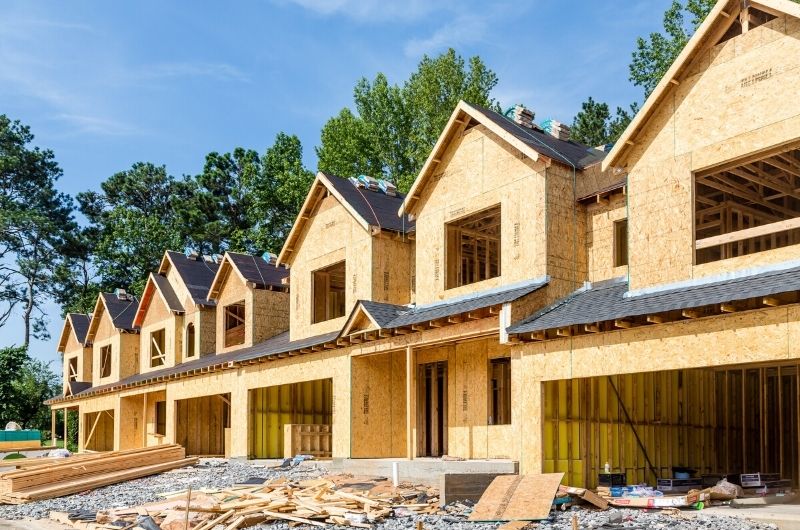New construction can be a thrilling investment opportunity for those seeking modern amenities, efficiency, and a blank slate for customization. However, like any investment, it comes with its own set of pros and cons that are worth exploring.

One of the primary advantages of investing in new construction is the opportunity to own a property that is built with the latest materials and technologies. These homes are often more energy-efficient, safer, and less prone to costly repairs compared to older properties. Additionally, new construction often comes with advanced amenities such as smart home systems, high-end appliances, and sleek designs.
Another significant benefit of investing in new construction is the lower maintenance costs. Since everything is new, owners won’t have to worry about repairing outdated plumbing, electrical systems, or foundation issues for years to come. This can result in significant savings over time and give owners peace of mind.
New construction often takes place in emerging neighborhoods or communities that are designed with modern living in mind. These areas may offer a range of community amenities such as parks, recreational centers, and shopping districts. This can be especially appealing to families or young professionals looking for a vibrant and connected community.
However, investing in new construction also comes with some notable drawbacks. One of the primary concerns is the higher upfront cost. New construction is often more expensive than buying an existing property, and the prices may not appreciate as quickly as buyers hope. Additionally, the process of buying new construction can be complex, with many variables and unknowns that can make it difficult to budget and plan.
Another potential con of investing in new construction is the possibility of delayed completion or construction issues. Delays in building completion can lead to months of uncertainty, and construction issues can result in costly repairs down the line. Buyers should carefully research the builder’s reputation and review the contract before signing.
Lastly, some investors may prefer the character and charm that comes with older properties. New construction can sometimes lack the unique features and architectural details that make older homes so desirable.
Ultimately, investing in new construction can be a smart move for the right buyer. While it comes with its own set of pros and cons, the benefits of owning a modern, energy-efficient property in a vibrant community can be substantial. Careful planning, research, and a clear understanding of the potential advantages and disadvantages can help buyers make an informed decision.
When it comes to mitigating the risks associated with new construction, several strategies can be employed. Firstly, buyers should research the builder’s reputation, review the contract carefully, and ensure that there are protections in place in case of delays or construction issues. Additionally, working with a real estate agent who is experienced in new construction can provide valuable guidance and insights throughout the process.
Buyers should also weigh the benefits of customizing a new construction property versus buying a resale property that has already been renovated. While customization can be appealing, it can also add significant costs and complexity to the process.
In conclusion, investing in new construction can be a great way to own a modern and energy-efficient property, but it is essential to be aware of the potential drawbacks and take steps to mitigate these risks. By carefully weighing the pros and cons and taking a thoughtful approach to the process, buyers can make an informed decision and find the perfect property to suit their needs.





